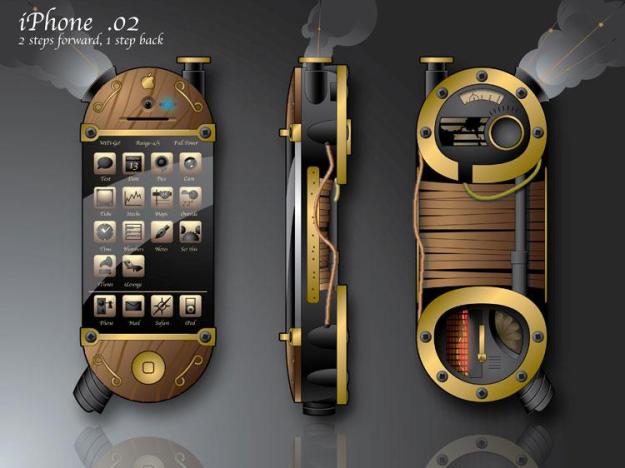
Some people enjoy speculating about celebrity romances, some people enjoy speculating about corporate mergers. Every once in a while, we sit down with a beer and talk about cool mergers that will never happen, but might be really interesting to watch. This week I figured I’d share some of the more interesting ones with you.
Disney + Apple
It wouldn’t matter which one bought the other, but this could be a really cool combination. In many ways, the two companies are already intertwined. Steve Jobs sat on Disney’s board, Disney CEO Bob Iger sits on both Apple’s and Pixar’s boards, and Disney bought Jobs’ old animation movie company some time ago, so the two firms might actually work well together.

Imagine rides that allowed you to stream unique video to your iPod, iPad, or iPhone, providing a behind-the-scenes experience that could include images of how the ride was constructed, what might be going on that you can’t see, and the vision of the Imagineers who built it. Disney could produce content designed specifically for iPod, iPad, and iPhone, or offer subscriptions to the Disney library for children with iPads. Park attendees could stream live videos to children of all ages who wished they could be there with them.
The combination of these two firms, which will never occur, could be an amazing thing.
Hyundai + Samsung
Both are Korean companies, and both are fast rising in their respective industries. However, while Samsung makes great personal technology and Hyundai is trending to be the new car company to beat, Samsung products don’t integrate with cars, and Hyundai (like most car companies) is a half a decade behind with in-car entertainment.
A merger between the two companies could result in a car designed for the tablet age, where you could remotely monitor your car on a Samsung Galaxy phone or tablet, or mount the tablet on the dash for advanced A/V capabilities while driving.
Your seat settings and other car personal features could be contained in the tablet and easily moved to new or rental cars. You’d have a tablet or a phone that would be co-branded with the car you have fallen in love with. No need for keys, because your device would helped the car identify you as its owner, and movies and music could transfer into the car from your personal technology device.

Rather than a new car with an aging A/V system, you could update the system with new Samsung products, giving you the best of both worlds: a car that is with you for three to five years, but tech that is as current as you want to make it.
Amazon + eBay + Lenovo
Amazon is great with new products, and has the best customer experience of the large-scale online vendors. eBay leads in the used market, and is better with auctions. The combination could result in single-click buying for eBay goods, and access to the vast depth of previously used products in the eBay ecosystem. Tracking for all of your activity would be in one place, and you’d never again have to go to two distinctly different systems to run down a late purchase.

Lenovo would contribute the hardware expertise to build a better Kindle Fire, which would be optimized to both shop on Amazon and to monitor bids on eBay. This (likely popular) tablet would be inexpensively built in China, but have ThinkPad-level quality. It would provide tablet technology to the masses that was better than the Kindle Fire is today, and more of a threat to the iPad. The commerce apps would subsidize the price, which given Lenovo’s Chinese roots, would tend to be aggressive anyway. You could have a $300 iPad killer as a result.
DreamWorks + HP
These two companies have collaborated on a number of technology products, like HP’s old Halo offering and some of its more unique workstations. But what if the two firms merged, and DreamWorks’ imagination made it into HP’s personal technology more broadly? You would have movie-themed products that connected to back-end services that would stream real-time content. HP’s dream of Augmented Reality (see MScape game demo) could be made real and themed like a DreamWorks movie. Workstations would be even more aggressively tuned to create amazing content. Imagination and reality would blend ever further into new genres of entertainment and technology.
You wouldn’t buy an HP PC or personal technology to just get stuff done, you’d buy it for the adventures it would take you on, the imagination it would unleash, and the new worlds you would explore with it. Imagination and engineering would combine to create a brave new world where what was real and what was virtual would be harder and harder to determine. It could be amazing.
Stranger things have happened
In the world of technology, stranger things than what we’ve dreamed about here have actually happened. Steve Jobs, the father of Apple (does that make Wozniak the mother?), also nurtured Pixar, which is now the imaginative heart of Disney. Cars are increasingly built around entertainment systems like Sync, which came from Microsoft. Most of the animation we see today comes from hardware built by companies like HP and Dell.
It is only a matter of time before executives suddenly realize that they have been dating between industries, and move for a marriage. Their hybrid children would allow the features of one industry to bleed into the capabilities of another. We might no longer be able to tell where our personal technology ends and our cars, homes, and imaginations begin.
The only real question: Which firm will break the ice first?
Guest contributor Rob Enderle is the founder and principal analyst for the Enderle Group, and one of the most frequently quoted tech pundits in the world. Opinion pieces denote the opinions of the author, and do not necessarily represent the views of Digital Trends.


